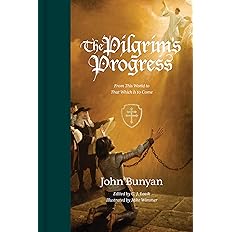Looking Deeper into the Problems with Covenant Theology
9. Though they would consciously deny the charge, it is undeniable that CT ‘s way of reading the Bible (as above) creates a major problem philosophically in that it strongly implies that God equivocates. More seriously still, the manner of equivocation means that equivocation belongs to the essential nature of the Godhead.
Imagine that several years back I promised you in writing that once I turned sixty you could have all sixty of my volumes of Systematic Theology. I have Calvin and Berkhof and Chafer and Hodge. I have Bavinck’s 4 volumes and Oden’s 3 volumes. Dabney, Griffith-Thomas, Reymond, Frame, Garrett, Horton, Ryrie, Geisler, Pannenberg, Migliore, Lewis & Demarest, Letham, McCune; you name it, I’ve probably got it. Who knows, you say to yourself, he might even throw in his sets of Berkouwer, and Barth, and Brunner, and Warfield, and Murray! Great, you think, I’ll borrow a truck.
Come the day of my sixtieth birthday you show up at my door. You are all expectant. My firm promise to you is what raised your expectancy. But you don’t receive my books. Instead, I tell you that my original promise actually had in view, not you, but all students of theology, and what I intended all along was for my theological works to be donated to a local seminary when I die. When I said “you” I meant a seminary library, and when I said “sixty” I meant “in my old age” which was code for after I am dead and gone. Question, who in this whole wide world would think that I was as good as my word? I could have told you initially what I really had in mind but for my own reasons I chose not to. Would it not be fair and accurate to label me disingenuous?
Another question: could God do this very same thing and expect the pious to just accept it because He is God? This matter struck me some time ago when I was trying to figure out how a God who wrote one thing could claim that what He said was “fulfilled” in a way that nobody could possibly have predicted given what was originally stated in writing.
Written promises are supposed to convey specific meanings. Even though it is possible to have slight misunderstandings owing to the prior assumptions of the reader such is not the case with the example I gave above. I raised your expectation about I particular gift of books and you ended up getting nothing. The problem was not that your assumptions caused you to misinterpret my words. The problem was that my words raised certain assumptions in your mind; assumptions that you had every right to believe were real!
Is God our Exemplar in keeping His word, or is He our Exemplar in changing it? And what are the ramifications of our answer? And what are we to think about statements like this?:
“Perhaps one of the most striking features of Jesus’ kingdom is that it appears not to be the kind of kingdom prophesied in the OT and expected by Judaism” – G. K. Beale, A New Testament Biblical Theology, 431 (my emphasis)
The word [musterion] elsewhere, when so linked with OT allusions, is used to indicate that prophecy is beginning fulfillment but in an unexpected manner in comparison to the way OT readers might have expected… – Ibid, 202.
[E]arlier expressions point to things beyond themselves that are greater than the meaning that would have been perceived by those receiving these earlier expressions.” – Graeme Goldsworthy, According to Plan, 123.
Aren’t these authors telling us something very similar to the illustration I gave above? Aren’t they saying that God made explicit promises to people which raised specific expectations in them and then “fulfilled” those promises in a totally different way than could have been understood given the words He used originally?
Here is my biggest problem with this: we call a person who employs certain language to create false impressions disingenuous. But what if God did this very thing? Would that make God disingenuous? And since God’s word are the only sure thing we have which point to His character, wouldn’t Him using deliberately misleading words logically entail that He could not be trusted? Wouldn’t it mean that faith in Him would be all but impossible since we would not really know whether our expectations of Him were to be “fulfilled” in “in an unexpected manner”?
What about this quote:
By gospel reformation Christ spiritually transforms God’s people from Hebrew Israel under the old covenant to Christian Israel under the new. – Greg Nichols, Covenant Theology: A Reformed and Baptist Perspective on God’s Covenants, 115
So the covenant oaths in the OT were always subject to change owing to “gospel reformation”; a contingency which could never have entered the minds of those poor benighted believers of the OT era.
How does one escape the clutches of this problem. It will not do to naively state that we have the promises of the NT to stand on because the same God who wrote the NT also wrote the OT. Nominalism, that ridiculous view that God can call black white because He is God is the only way out that I can see.
I rest my case. Ponder these things.


